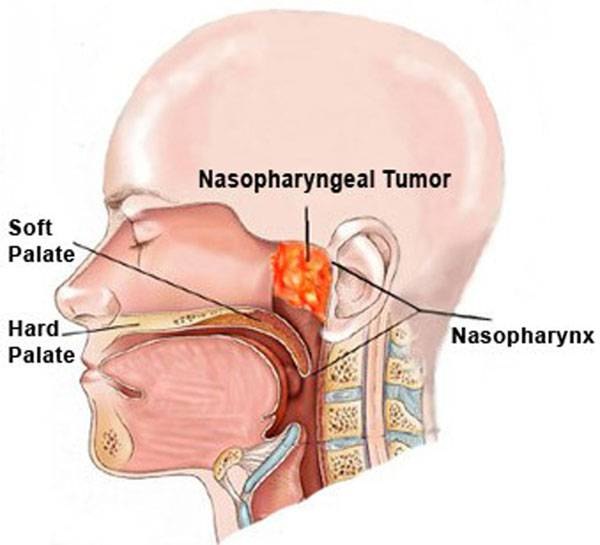"Excellent service at the hospital & Dr Manish Prakash is an excellent ENT Surgeon in Gurgaon, he is treats patients with lots of care . the staff is very cooperative & polite."

Overview
Nasopharyngeal cancer is a rare and aggressive type of head and neck cancer that originates in the nasopharynx, the upper part of the throat behind the nose and near the base of the skull. Despite its deep-seated location, an experienced ENT (Ear, Nose & Throat) specialist plays a crucial role in its diagnosis, treatment coordination, and symptom management. At our advanced ENT facility, we provide comprehensive care for nasopharyngeal cancer through early detection, accurate diagnosis, and collaborative treatment with oncology experts. With cutting-edge endoscopic tools and imaging technologies, our ENT specialists ensure that patients receive timely and personalized medical attention.
What is Nasopharyngeal Cancer?
Nasopharyngeal carcinoma (NPC) is the most common type of cancer that occurs in the nasopharynx. It arises from the epithelial lining and is frequently associated with the Epstein-Barr Virus (EBV), especially in certain geographical regions like Southeast Asia and North Africa.
Symptoms of Nasopharyngeal Cancer
In its early stages, nasopharyngeal cancer may not cause obvious symptoms, making early diagnosis challenging. As the tumor grows, patients may experience:
- Persistent nasal congestion or blocked nose
- Frequent nosebleeds
- A lump in the neck due to lymph node enlargement
- Hearing loss or ear fullness (commonly in one ear)
- Ringing in the ears (tinnitus)
- Headaches or facial numbness
- Difficulty breathing or speaking
These symptoms are often misinterpreted as sinus or ear infections, which is why ENT evaluation is critical if such symptoms persist.
Causes and Risk Factors
Understanding the risk factors of nasopharyngeal cancer can help with early detection:
- Epstein-Barr Virus (EBV): A strong association exists between EBV infection and NPC development.
- Genetics: Family history of nasopharyngeal cancer increases risk.
- Diet: Consumption of preserved foods high in nitrosamines (like salted fish).
- Smoking and alcohol: Though not as strong a risk factor as in other head and neck cancers, it still contributes.
- Occupational exposure: To wood dust, formaldehyde, and certain chemicals.
Diagnosis by ENT Specialist
Our ENT specialists play a pivotal role in diagnosing nasopharyngeal cancer. Due to the hidden location of the nasopharynx, special tools are used for visualization and biopsy.
Diagnostic steps include:
- Nasal Endoscopy: A flexible scope is inserted through the nose to view the nasopharynx.
- Biopsy: Tissue samples from suspicious lesions are collected and sent for histopathology.
- Imaging: MRI and CT scans help determine the tumor’s size and spread.
- EBV Testing: Blood tests for Epstein-Barr Virus DNA levels may assist in diagnosis and monitoring.
- PET-CT scan: For staging and evaluating metastasis.
Early detection by an ENT expert is key to improving outcomes and planning targeted therapy.
Treatment Options
Nasopharyngeal cancer requires a multidisciplinary approach. ENT specialists work closely with oncologists, radiologists, and head and neck surgeons to manage treatment. The main treatment modalities include:
1. Radiation Therapy
- Primary treatment for nasopharyngeal cancer, especially in early-stage disease.
- Intensity-Modulated Radiation Therapy (IMRT) is preferred for its precision and reduced side effects.
- ENT specialists help monitor and manage radiation-induced complications like dry mouth, throat ulcers, or ear infections.
2. Chemotherapy
- Used in combination with radiation (chemoradiation) in advanced stages.
- Also considered in recurrent or metastatic disease.
3. Surgery
- Rarely the first line due to the inaccessibility of the nasopharynx.
- ENT specialists may perform surgical biopsies or neck dissections if lymph nodes are involved.
- Surgery is reserved for cases where radiation and chemotherapy fail.
Supportive Care by ENT Specialist
ENT specialists not only diagnose but also provide vital supportive care throughout the treatment journey:
- Ear care: Managing radiation-induced ear infections or Eustachian tube dysfunction.
- Tracheostomy: In severe airway obstruction cases.
- Speech and swallowing therapy: Post-treatment support for patients with speech or deglutition difficulties.
- Nutritional support: Coordinated with dietitians due to treatment-related oral and throat discomfort.
Why Choose Us for Nasopharyngeal Cancer Treatment?
- Expert ENT specialists with years of experience in head and neck oncology.
- Advanced endoscopic diagnostic tools for precision evaluation.
- Multidisciplinary cancer care team including oncologists, surgeons, and radiologists.
- Personalized treatment plans focused on improving quality of life and long-term survival.
- Post-treatment rehabilitation and monitoring to minimize recurrence.
Prognosis
The prognosis of nasopharyngeal cancer depends on the stage at diagnosis, tumor size, and response to treatment. With modern radiation therapy and chemoradiation protocols, even advanced stages can show favorable outcomes when managed properly. While advanced cases may still benefit significantly from aggressive combined treatment and close monitoring by ENT and oncology teams
Book a Consultation Today
If you’re experiencing persistent nasal or ear symptoms, or have been diagnosed with a mass in the nasopharynx, don’t delay. Consult our ENT specialists for expert evaluation and timely treatment. Early diagnosis and intervention can make a life-saving difference.

